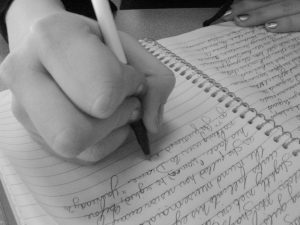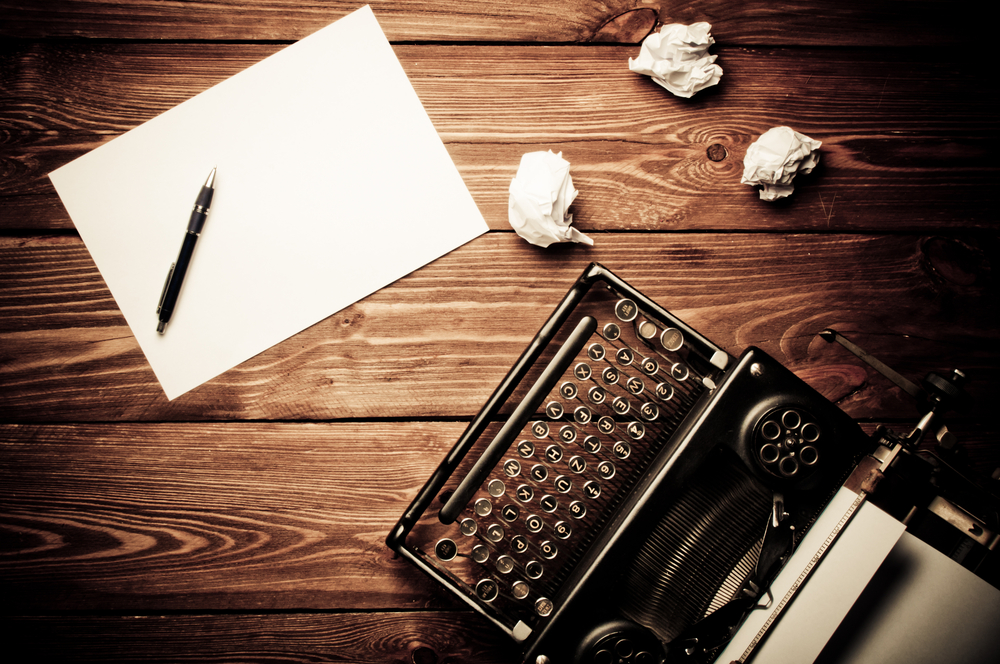 I’ve had a regular journal habit since I was in my teens. Journaling is the way I work out problems, get things out of my system, discover what I really think about the world. But my journal writing creative practice, in the deliberate sense , has been a long time in development.
I’ve had a regular journal habit since I was in my teens. Journaling is the way I work out problems, get things out of my system, discover what I really think about the world. But my journal writing creative practice, in the deliberate sense , has been a long time in development.
At first, possibly inspired by Sue Townsend’s Adrian Mole, it was just the usual teenage diary. It mostly consisted of my day-to-day woes, major news headlines , friend and teacher sagas, longstanding and hopeless crushes. OK, so I didn’t write to the BBC as Adrian does with embarrassing frequency, but these ancient records of my former self are no less cringe-worthy.
As I got older, I found I just couldn’t stop putting pen to paper in one form or another. At college, pre-internet and email, and when I travelled, and worked all over the world, I was well known among my friends for my epic letter-writing. A 12-side probably unreadable letter from me was not at all unusual. I also made the discovery that whenever had a problem to sort out, putting pen to paper and “writing through it” privately often seemed to lead to a solution. The process of journaling itself seemed to have an almost magical effect, a path through any problem. Little did I know then that these unofficial scribblings would turn out to be one of the most effective creative practices there is.
Types of Journaling
Obviously, there’s a distinction between “recording the external in detail” and “self-expression”. Both, of course, are hugely useful for fiction writers.
Reportage
Detailed note-taking – about places, things, people, events. The aim is to capture exact detail, much like a photograph. It is factual, although the ways you record and what you pick up on can often be revealing about your own writing territory, preoccupations and truths.
Try taking your notebook and pen to a particular place to observe and describe exactly what you see, what stands out to you. People-watch and eavesdrop and write down what you hear. Deliberately try to capture the essence of a particular place, or building, or backdrop, focusing on all the detail. You can journal for detail wherever you go, as long as you have something to write on and with.
If you want to go deeper, there are some fantastic writing exercises you can do that directly tie the reportage of place to the personal; the exercises in Julia Cameron’s Right to Write, for example, or Merlin Coverley’s Psychogeography. (I’ll be reviewing both of these books soon.)
Diarising
Old-school and essentially linear, driven by date, just as I did as a teen. Your thoughts about your day-to-day, news stories, anything on your mind. These entries can seem quite unremarkable at the time – they don’t have to be Art – but are often fascinating to look back on.
I actually have in my possession my late grandmother’s diary from 1936, which was the year she got married and moved into the then newly-built house that she would live in for the rest of her life. It’s a pocket-sized burgundy-coloured Letts Diary, the endpapers printed with details about postal rates to the various countries across the-then vast British Empire. Train timetables up “to town” , measurements for hats, gloves and shoes. The entries probably seemed quite mundane to my grandmother, detailing her wedding preparations, her cinema dates with my grandfather, and their numerous spats. But these are interspersed with the news events of the day. The funeral of the King, the saga of Edward VII’s abdication crisis playing out on the wireless, and of course, ominous signs of the impending war.
Diaries can provide important details and nuances about a particular time or era, either for ourselves or others. They can be great prompts for pieces of fictional work. It’s interesting, too, to note the formalities – what people choose to reveal and convey of themselves or exaggerate in their “official” diaries – and what they don’t.
Project Journaling
This is something I do regularly now. It involves gathering material and thoughts on specific projects or topic areas, and keeping them together in one place. I often keep entirely separate journals for different projects. These are great when you are in the research stage of a project, allowing you to make detailed descriptions of settings, characters and so on. You can write about related news stories, or your own personal thoughts about the issues and themes at hand. When I start a big project, I also like to track my project progress in a journal. The things I am thinking and worrying about at different stages, the problems to resolve, what I feel is succeeding and isn’t. Currently for example, I am journaling about the novel I am working on.
Free-writing
A completely different type of journaling, freewriting is entirely about self-expression: whatever comes out, unedited will come out. The best forms of freewriting, I’ve found, rarely involve going back and looking at what you’ve written ; writing perfect descriptive prose is not the purpose, although you may find the odd gem if you do go back and look. I often use freewriting as a “warm up” before starting my writing proper, with the purpose being to completely turn off my inner editor. The most common form is to write for a certain number of minutes (it could be on a topic, from a prompt, starting from a first line etc) without stopping, and without taking the pen off the page.
Morning Pages
A form of daily freewriting, as advocated by Julia Cameron in The Artists Way and a very similar idea by Dorothea Brande before her.
Essentially, it is three A4 pages of freewriting, to be done every morning as soon as you wake up, and it’s a central part of my creative practice. Again, you write without stopping, you write anything that comes into your head, and you don’t take your pen off the page until the three pages are done.. The purpose, again, is to completely turn off your inner editor and critic and reconnect you with your creativity. Which all sounds very woo, but I can honestly say that including regular morning pages in my daily practice substantially deepened and improved the quality of my work. I have about thirty notebooks now, all filled with my unreadable scrawl, most of which I’d never reread, but which I know are responsible for most of my writing successes so far.
It’s certainly a method I can highly recommend.


